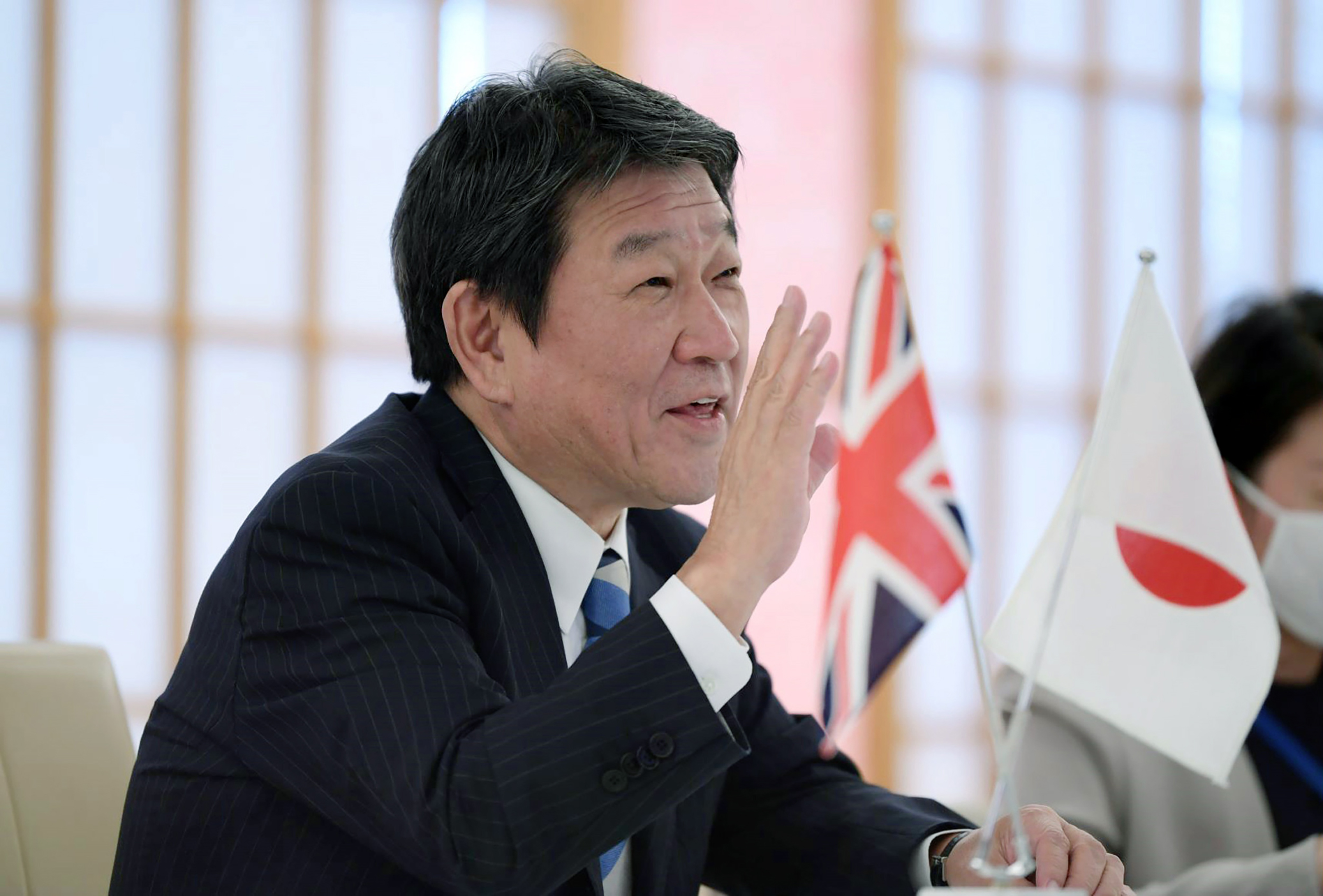A little ray of light shone on “Global Britain” from the U.K.s new and improved rollover trade deal with Japan, which was agreed in principle on Friday and is the first independent deal the U.K. has signed after leaving the EU.
Its not only a welcome diversion from Britains troubled negotiations with the EU on their future relationship but also a big win for U.K. Trade Secretary Liz Truss who, from a political perspective, is seen carrying the flag of Britains future out of the EU through the agreement (in principle, for now) with Japans Foreign Minister Motegi Toshimitsu. The deal, which took a little over three months to conclude, is expected to be signed soon and its text will be available in October.
After the deal was announced on Friday, however, trade experts said it will be hard to say exactly how far the U.K.-Japan Comprehensive Economic Partnership Agreement pushes beyond Japans deal with the EU until they get their hands on the details of the text.
The deal is not expected to improve on the 0.07 percent increase (some £1.5 billion over the long term) to British GDP from the agreement forecast by the government. But it will increase trade with Japan by about £15.2 billion. Although Japan makes up 2 percent of British trade, there is still lots to be thankful for in the agreement, experts said. Weve rounded up five of the most promising things:
Politically speaking
The substance of the deal is almost as important as its political implications — showing that the dream of Global Britain is alive and well. It is “crucial” for the U.K. government that it “could strike the first trade deal with Japan as an independent trading nation,” said Minako Morita-Jaeger, a fellow at the UK Trade Policy Observatory. The agreement will also “play a role as a strong foundation to broadly enhance the UK-Japan bilateral cooperation beyond trade,” she said.
Security for business
Beyond any advances in trade relations it makes, the deal provides security to businesses. “This is an important milestone for U.K. businesses who are eager to have certainty around their future trade relationships,” said Ian Tandy, head of trade at HSBC UK, pointing out the deal “will provide continuity in trading conditions from the start of next year and some reassurance for the 8,000 U.K. SMEs who are already exporting [to Japan].”
As the looming threat of a no-deal Brexit hung over talks between Britain and the EU this week, the Japan agreement is “a small relief for British and Japanese businesses,” said Morita-Jaeger. Their nerves arent completely settled yet, however, as Japanese businesses have traditionally used Britain as a hub to access the EU market for decades and are keen to see business flows continue unhindered through a solid EU-U.K. deal.
What it does for goods
The deal will see “strong tariff reductions” for U.K. pork and beef exports with low tariffs for food and drink products such as Stilton cheese. The deal also provides more generous quotas for malt than quotas in the EU-Japan deal, and reduced tariffs for car and rail parts supplying companies like Nissan and Hitachi.
One interesting advance it makes is in cumulation and rules of origin, making British exports to Japan that have a lot of EU parts in them count as goods originating from the U.K. However it doesnt resolve the issue of British goods containing lots of Japanese parts that the U.K. wants to sell into the EU, which will need to be sorted out in a trade deal with the bloc. The Japan deal also allows the U.K. to apply for up to 70 geographical indications (GIs) on special products. Right now it has seven.
Bumping up services
The deal also proviRead More – Source
[contf]
[contfnew]

politico
[contfnewc]
[contfnewc]























































